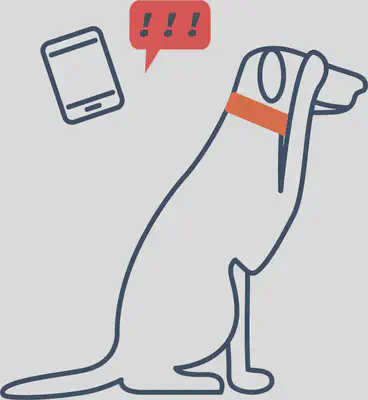Critical ignoring
Digital technologies have revolutionized access to information: it is overabundant, and always within reach. But a person’s attention remains a limited cognitive resource that is only too quickly overwhelmed when confronted with an unlimited supply of information sources. Furthermore, not everything that’s online is what it claims to be, and alongside an abundance of high-quality information, people are also lured into the traps of low-quality, distracting, false, and manipulative information.
Therefore, when the world comes to people filtered through digital devices, not only must they decide what information to seek, but also what information to ignore. To regain control and reclaim autonomy in the world of information overabundance, new competencies are needed that shield people from the excesses, traps, and information disorders of today’s attention economy.
One key competence is what we call critical ignoring. This is the ability to choose what to ignore and where to invest one’s limited attentional capacities. It is not simply about disregarding information, but rather, it involves developing mindful and healthy habits in the face of information overload.
Critical ignoring is a type of deliberate ignorance—a human desire not to know. This refers to the conscious decision to ignore information, even when the costs of obtaining it are minimal. Even though humans are often portrayed as “informavores,” there are numerous circumstances when people avoid acquiring or using information. For instance, one may choose to avoid knowing the ending of a movie to enhance suspense, or hiring committees may opt to blind themselves to certain information about applicants for the sake of fairness. Deliberate ignorance can also serve as a tool for managing information, and this is where critical ignoring comes in.
There are various strategies for implementing critical ignoring, but three are particularly crucial. These strategies are tailored to address different types of harmful information.
Self-nudging refers to taking control of one’s own information environments, such as social media feeds and digital devices, to minimize distractions and facilitate the accomplishment of desired tasks. It can be challenging to resist the pull of attention-grabbing content, so instead of relying solely on self-control, self-nudging removes the temptation altogether. This technique is accessible to anyone; for example, a common self-nudge is to remove addictive social media apps from the home screen or to set time limits on their use. Lateral reading is a straightforward technique employed by professional fact-checkers. To verify the credibility of information from an unfamiliar source, one can leave the page and search the web to see what others, such as Wikipedia and news organizations, have to say about the source and its claims. Simply looking at a single website or social media post is not enough to determine its trustworthiness. Without having relevant background knowledge or reliable trust indicators, the best strategy to decide whether to believe a source is to research the author or organization and their claims elsewhere. Finally, the “do-not-feed-the-trolls” strategy is an essential aspect of critical ignoring that involves filtering and blocking out malicious users. Trolls who engage in harassment and other antisocial behaviors thrive on attention. Users who deliberately spread dangerous misinformation often resort to similar trolling tactics. For example, one strategy used by science denialists is to create the illusion of a scientific debate where none exists by consuming people’s attention. The “do-not-feed-the-trolls” strategy means not responding directly to trolling, such as correcting, debating, or retaliating. Instead, it suggests blocking trolls and reporting them. However, this is not the only line of defense against malicious actors, and it should be complemented by sensible and transparent measures on the platform level, such as debunking and content moderation.

Key links and references
-
Kozyreva, A., Wineburg, S., Lewandowsky, S., & Hertwig, R. (2023). Critical ignoring as a core competence for digital citizens. Current Directions in Psychological Science, 32(1), 81-88. https://doi.org/10.1177/09637214221121570
-
- Hertwig, R., & Engel, C. (2016). Homo ignorans: Deliberately choosing not to know. Perspectives on Psychological Science, 11(3), 359–372. https://doi.org/10.1177/1745691616635594
-
Wineburg, S. (2021, May 14). To navigate the dangers of the web, you need critical thinking—but also critical ignoring. The Conversation. https://theconversation.com/to-navigate-the-dangers-of-the-web-you-need-critical-thinking-but-also-critical-ignoring-158617